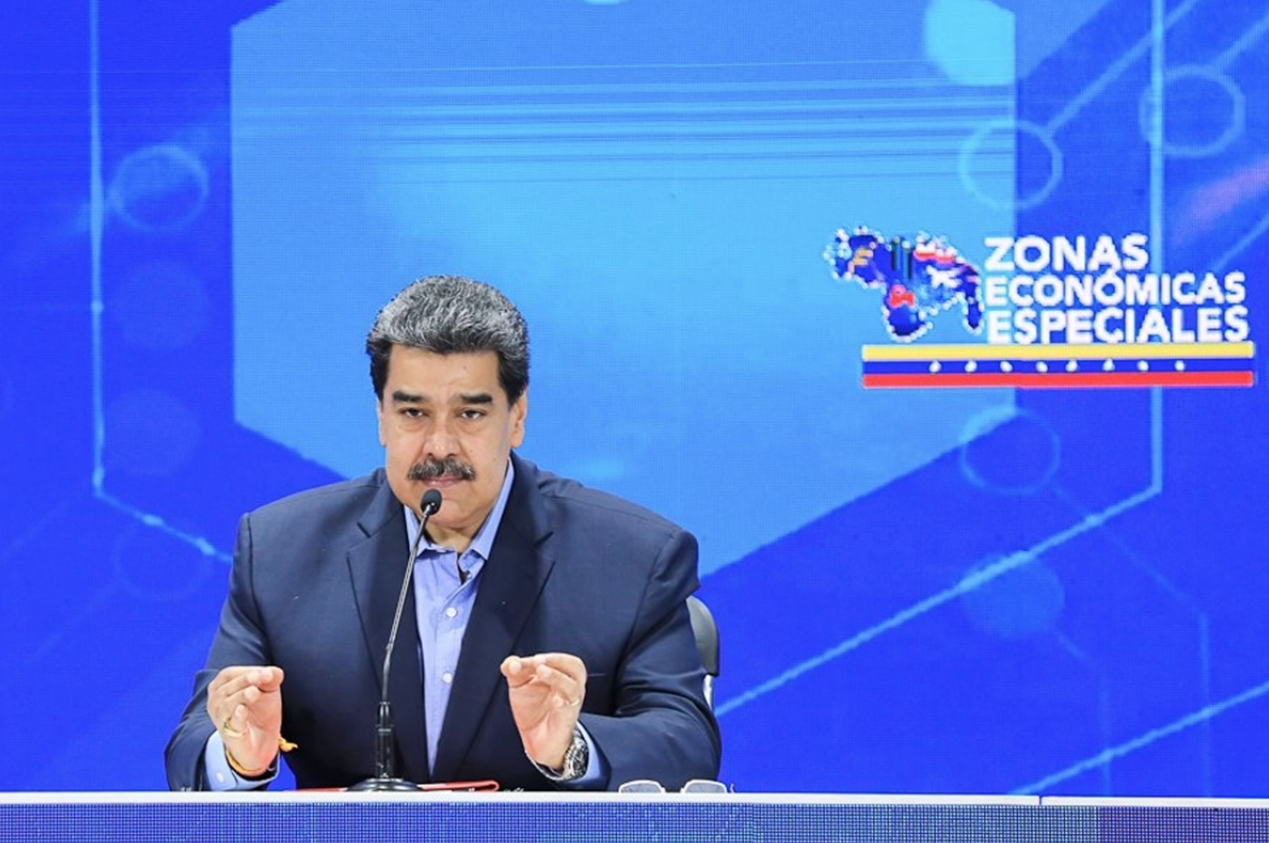On July 20, Nicolás Maduro announced the creation of five Special Economic Zones (SEZs) in several coastal regions of Venezuela: Paraguaná, Puerto Cabello-Morón, La Guaira, Margarita and La Tortuga Island. The news, of obligatory diffusion in a “national chain”, as is the custom of Chavism, was accompanied by its corresponding organic law and superintendence.
It is a regulatory instrument of 38 articles in which a governmental initiative is proposed to promote foreign investment and seek a “new balance in national development” based on the previous Anti-Blockade Law. Basically, this is a desperate attempt to attract foreign currency and circumvent international sanctions, in view of its pertinacious refusal to yield in its despotic way of exercising authority and avoiding any negotiated settlement to its political entrenchment.
The SEZs are located in specific geographic regions (usually with access to the sea) in which a tax regime is established that is differentiated from the rest of the country, in order to promote certain commercial activities oriented mainly toward the international trade of goods and services. Since the mid-1970s, this type of mechanism has been implemented in several countries around the world through different modalities, and there are currently more than 4,000 SEZs in 76 countries. Almost half of them have succeeded in prospering and sustaining themselves over time.
Much of the success of these zones is due to different socioeconomic conditions, beyond their low tax burden. The SEZs require a minimum infrastructure of public services, as well as the minimum legal security so that any national or foreign investment can be profitable and protected against any potential arbitration; a “win-win” scheme that includes the business sector, something historically alien to the economic doctrine of Chavism, always suspicious of the free market in any of its forms.
On a global scale, one of the most recent cases, although of uncertain future, were the free ports and the SEZs proposed by the outgoing government of Boris Johnson as compensation for Brexit in the United Kingdom. Meanwhile, in our region, the SEZs implemented in Mexico during the administration of Enrique Peña Nieto and more recently the Bitcoin City project in El Salvador stand out, following the questionable government decision to make this crypto-asset a legal tender. Regarding the latter, after several months of the festive announcement by President Nayib Bukele, the location is still El Zonte, a small fishing village in the south of the country, where it is still waiting for investors to turn the place into the first cryptocurrency-focused SEZ.
These cases show that, beyond the sophistry of politicians, the flourishing of these zones does not depend on a presidential decree or the will of a handful of state-dependent entrepreneurs. Private investment with a certainty of profit is needed.
In Venezuela, everything has been shipwrecked during socialism.
In contemporary Venezuelan economic history, there is a precedent in the well-known free trade zones created in 1991. At the time, these were able to partially dynamize the economy and functioned at certain moments as mechanisms to balance the country’s trade balance. However, their operation has since been highly influenced by government management, which ended up degenerating them into zones mainly oriented towards the so-called “port economy”. That is to say, spaces dedicated to massive imports have been promoted by the oil income, which was used to replace the national entrepreneurial fabric in economic areas historically considered as “strategic” or of “national interest”.
It is important to consider that Venezuelan socialism, throughout its more than two decades of political hegemony, has caused the extermination of private enterprises, an economic catastrophe without precedent in the region. According to data from Conindustria and Fedecámaras, the Bolivarian revolution has led to the expulsion of around half a million private companies, in addition to the expropriation and nationalization of more than 1,400 companies in Venezuela.
In the face of such a disaster, the Maduro regime is now appealing to these special economic zones. But, as it refers throughout its articles, the supervisory and oversight role of the State conditions any operational and capitalization aspect that may be developed in these SEZs. Furthermore, these entities are administratively attached to officials with international financial restrictions against them and, in some cases, even with arrest warrants. According to the Venezuelan firm Ecoanalítica and the NGO Transparency International, 21% of the Venezuelan State’s income comes from illegal activities, the same State that is directly responsible for the sharpest drop in the gross domestic product in the region since 2013.
This not very encouraging background is what any businessman, national or foreign, seeking any kind of participation in these SEZs will have to consider. In fact, despite those who claim that Venezuela has authoritarian state capitalism, in practice, its economy is at the antipodes of a minimum regime of capitalization and sustainable market opening. Not even for its own bodegones’ bourgeoisie.
Therefore, it is clear that political voluntarism and nationalist speeches are not enough to make private investment emerge. In the case of an economy in the dark by the wreckage of its own authoritarian State, what is required is more rule of law, more transparency, more autonomous investment, entrepreneurial freedoms, the possibility of profit, infrastructure of basic public services and, above all, respect for private property. Only in this way can these SEZs be considered a solid and sustained development strategy.
Translated from Spanish by Janaína Ruviaro da Silva












